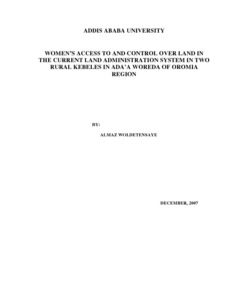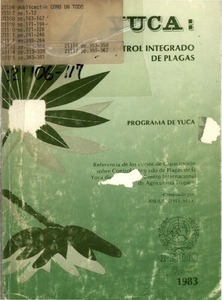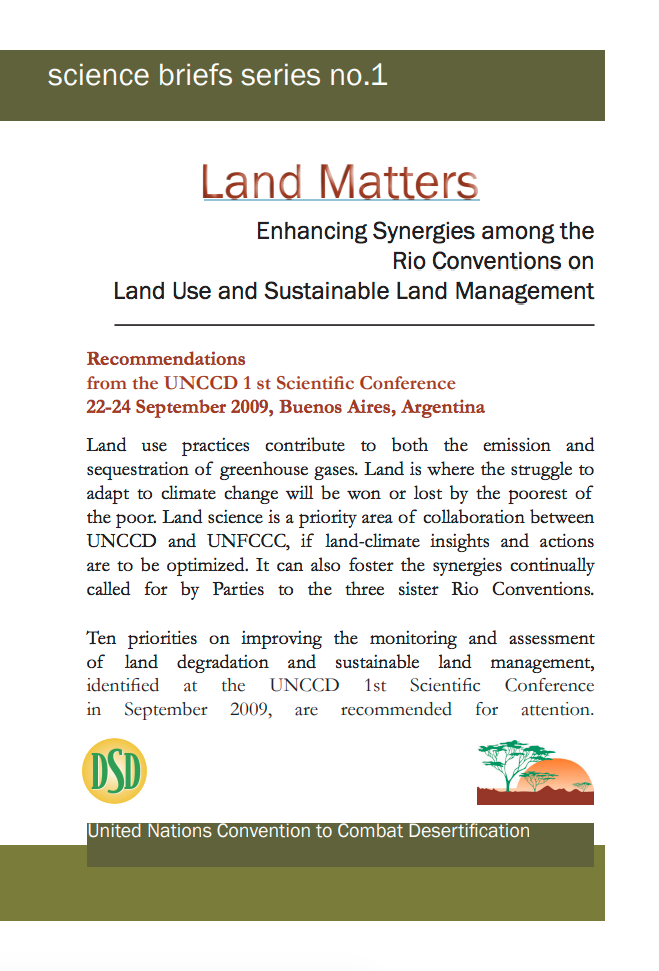land use
AGROVOC URI: http://aims.fao.org/aos/agrovoc/c_4182
Water resources assessment of the Volta River Basin
The ‘WISE-UP to climate’ project aims to demonstrate the value of natural infrastructure as a ‘nature-based solution’ for climate change adaptation and sustainable development. Within the Volta River Basin, both natural and built infrastructure provide livelihood benefits for people. Understanding the interrelationships between the two types of infrastructure is a prerequisite for sustainable water resources development and management. This is particularly true as pressures on water resources intensify and the impacts of climate change increase.
Wealth, livelihood transitions and poverty in Northern Lao, PDR. Why targeted development interventions are needed
Women’s access to and control over land in the current land administration system in two rural kebeles in Ada’a Woreda of Oromia Region
The study is designed to explore the status of rural women in access to and control over land in the current land administration system in two rural Kebeles in East Shewa Zone Ada’a Woreda of Oromia region on smallholder farmers’ landholding registration. The Ormia National Regional State Rural Land Administration and Use Proclamation and its implementation procedure are examined from a gender perspective in terms of ensuring rural women’s land holding rights and control they have over land.
Workshop on Soil Fertility Research for Bean Cropping Systems in Africa (1988, Addis Ababa, Ethiopia). Proceedings
A regional workshop was held in Ethiopia (Eastern Africa) to assess the status, future needs, and methodological issues of soil fertility research for bean cropping systems on the continent. Traditional forms of soil fertility maintenance, diagnosis of soil fertility constraints, nutrient requirements, use of fertilizers, cropping systems and soil fertility, and soil organic matter and the use of green manures and mulching were addressed.
Yuca en cultivos asociados: Manejo y evaluacion
The management of cassava intercropping and its evaluation are described. Multiple cropping systems are defined: consecutive cropping and intercropping (mixed intercropping, row intercropping, strip intercropping, and relay intercropping). Basic biological and nutritional aspects of multiple cropping are analyzed and cassava intercropping systems practiced throughout the world (Latin America, Africa, and Asia) are described.
Yuca: Control integrado de plagas
Due to the increasing extension of areas planted to cassava in tropical countries, the maintenance of biological equilibrium through adequate integrated control techniques becomes imperative as well as the collection of data on var. resistance, biological control, and cultural practices. Basic information for integrated pest control is given. Arthropods attacking cassava are described regarding yield losses, biology, morphology, and ecology. Criteria for the establishment of a control program on var.
Yields and acceptability of opaque-2 maize in the tropics of Colombia
Yield trials with farmers and acceptance surveys were conducted in Colombia in 1969-1970 to assess the potential use of opaque-2 maize in the tropical regons of the country. Yields were variable, particularly from one farm to another. In spite of this variability which may have confused the results, and analysis of variance was applied, using farms as replications.
International Conference on Amazonian Agriculture and Land Use Research (1, 1980, Cali, Colombia). Amazonia: agriculture and land use research: Proceedings
Land Matters: Enhancing Synergies among the Rio Conventions on Land Use and Sustainable Land Management
Land use practices contribute to both the emission and sequestration of greenhouse gases. Land is where the struggle to adapt to climate change will be won or lost by the poorest of the poor. Land science is a priority area of collaboration between UNCCD and UNFCCC, if land-climate insights and actions are to be optimized. It can also foster the synergies continually called for by Parties to the three sister Rio Conventions.
Responses to the linked stressors of climate change and HIV/Aids amongst vulnerable rural households in the Eastern Cape, South africa
Climate change and the HIV/AIDS epidemic are two of the most critical long-term global challenges, especially for Africa and even more so Southern Africa.
Learning from the decline of smallholder agricultural projects in the Kat River Valley, Eastern Cape, South Africa
Local level, collective small-scale farming projects in the Kat River Valley, like elsewhere, have proven difficult to sustain. Various factors from macro-level policies to local level social and political dynamics were found to hinder or block the success of such projects. Some of the most challenging factors relate to history and path dependency, prevailing neoliberal agricultural policies and discourses, narrow markets, internal conflicts, lack of local capacity and unclear and insecure land tenure.





